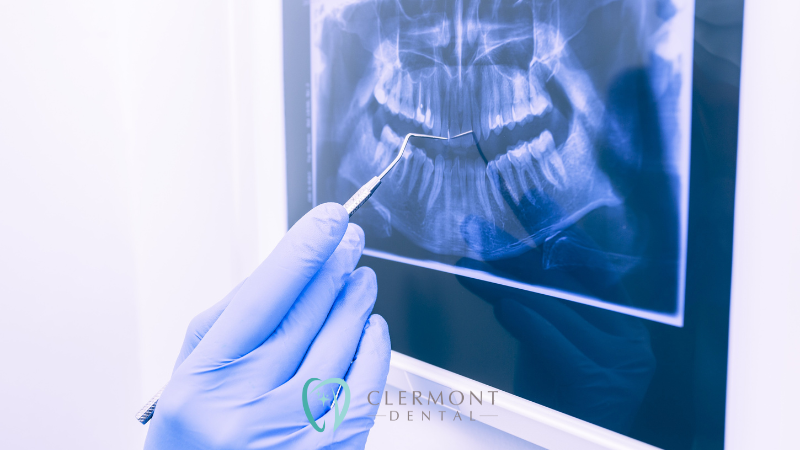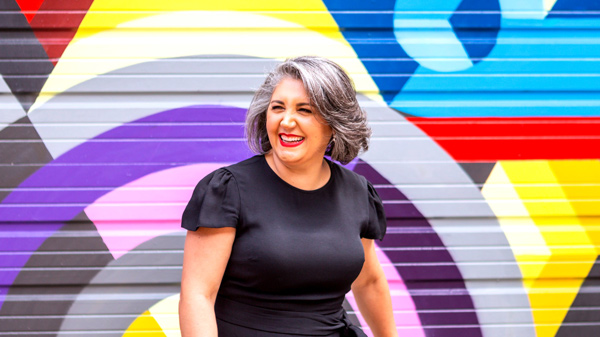Oral health is important for everyone, but it’s especially important for children. That’s why in honor of National Children’s Dental Health Month, we will be sharing some useful tips that you can quickly apply and teach your children.

This is so important because the habits you teach your child when they’re young can stick with them throughout their life. Kids develop their oral health and hygiene habits early on, so it’s up to parents to give them a healthy start.
Oral health begins in the mouth; therefore, brushing twice daily and flossing at least once every day are critical parts of a successful oral hygiene routine. Here are our eight tips for teaching your children about proper oral care:
1. Get your child used to the dentist.
The first step to getting your child used to the dentist is taking them along with you. Explain what will happen in a fun way, and let them know that they’re going on an adventure. This will help put their mind at ease so they don’t feel nervous or scared when they arrive at our office.
The next step is explaining what we’ll do when we see each other again: We’ll look at their teeth (which sounds scary), but then we’ll clean them (and this part doesn’t sound scary).
Once they are used to coming to the dentist, it is important to schedule their routine 6-month cleanings. Dr. Safavi or a pediatric/general dentist will teach you how to prevent dental disease, check for cavities in the primary teeth and watch for developmental problems, and set a positive precedent for future visits.
2. Teach them to brush properly
Brushing your teeth is an important part of staying healthy and keeping your mouth clean. But, it’s also important to make sure you’re doing it right! Here are some tips for brushing your teeth:
- Brush in circular motions with soft bristles on the top and bottom of each tooth.
- Brush for 2 minutes–that’s long enough for the song “Happy Birthday” to play twice!
- Try not to miss any spots when you brush; if you do miss a spot or two, go back and make sure those areas get cleaned up as well.
The best way for a child to learn how often they need to brush is by watching you do it! So if you’re in the bathroom brushing your own teeth, make sure they see what you’re doing–and ask them questions like: “How do we brush our teeth?” or “Why do we need to brush our teeth?”
3. Use the correct toothpaste
Don’t let your children use your toothpaste if they don’t have the right teeth for it.
- If you’re giving your kid a toothpaste with fluoride, make sure it’s appropriate for their age. Children under the age of 3 should not use adult toothpaste because it could be too abrasive for their developing enamel.
- If your child does need a stronger formulation, make sure to brush with water first and then apply the paste–not vice versa–to avoid over-brushing with an abrasive paste that could damage young gums and cause sensitivity in older kids as well.*
4. Create a dental hygiene bedtime routine
Creating a system that your children can follow will help them begin to learn and understand the new habits they must follow.
For example, you can avoid any sweets or sugary foods before bed time.
There are a lot of reasons why you shouldn’t let your kids eat sweets before bedtime. First, sweets can cause tooth decay. Second, they can lead to bad breath. Third, they may cause stomach aches and make children feel tired or irritable during the day (not what you want when trying to get through a busy day). Finally, eating too much sugar can make kids hyperactive which means they won’t be able to sleep at night!
Another thing to try in the bedtime routine is ensuring your children brush their teeth before they go to sleep. Brushing immediately after meals helps to remove food particles that can cause cavities, as well as plaque. It also helps to remove bacteria that can cause tooth decay.
5. Avoid sugary drinks and foods where possible.
Avoid sugary drinks and foods if possible. Sugary drinks are bad for your teeth, and they’re also bad for your body. Sugar is highly addictive and can lead to cavities and tooth decay, as well as obesity and diabetes.
Cavities (also known as caries or tooth decay) are the most common chronic disease of childhood in the United States. Untreated cavities can cause pain and infections that may lead to problems with eating, speaking, playing, and learning.
If you want to fight back against this trend in your child’s life, start by cutting out or reducing all soda from their diet (even Diet Coke). Instead make water a family staple–it’s better for everyone!
6. Eat more dairy, fruit and vegetables, especially dark leafy greens.
One of the best things you can do for your child’s oral health is to make sure they’re eating plenty of fruit and vegetables. Dark leafy greens are particularly good for their teeth, so try to encourage your kids to eat spinach or kale on a regular basis.
Milk is an excellent source of minerals that are essential for building strong teeth. In addition, fruit and vegetables also contain vitamins and minerals that help keep their teeth healthy, which means that including them in your child’s diet will help them avoid cavities in the future. You’ll also want them to drink plenty of water; this keeps their mouth moist, which prevents bacteria from growing on tooth surfaces (and causing decay).
7. Keep your children hydrated
Encourage children to drink more water to help prevent tooth decay. Water is good for the body – it keeps joints, bones and teeth healthy, helps the blood circulate, and can help kids maintain a healthy weight into adulthood. Being well hydrated improves mood, memory and attention in children .
If you choose bottled water, check the label for fluoride content. According to the American Dental Association, fluoridated water can reduce the number of cavities children get in their baby teeth.
8. Make flossing part of your children’s oral care routine.
Flossing is an important part of your children’s oral care routine. Flossing helps to remove plaque and food particles from between teeth, which can help prevent tooth decay, gum disease and bad breath.
It’s best if you start flossing at a young age so that it becomes a habit. You should also teach them how to use an electric toothbrush (if they are old enough) as this will make it easier for them to clean their teeth properly without damaging their gums or getting any bacteria trapped in between their teeth.
Conclusion
We hope you found these tips helpful. Remember, it’s important to keep your teeth clean and healthy as a child, so that they’ll stay in good shape throughout adulthood. If you have questions about any of the tips above or would like more information on how we can help your child maintain their oral health, contact us today!







